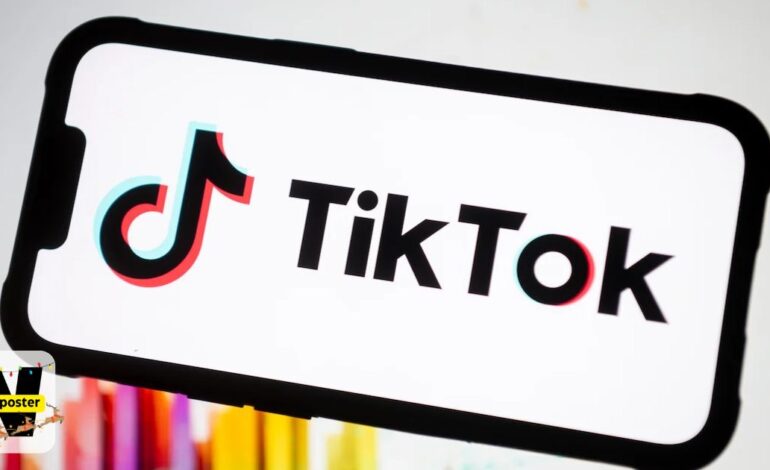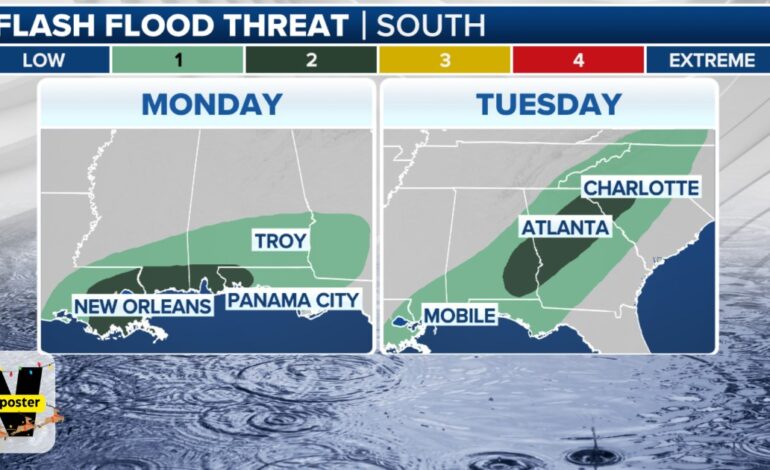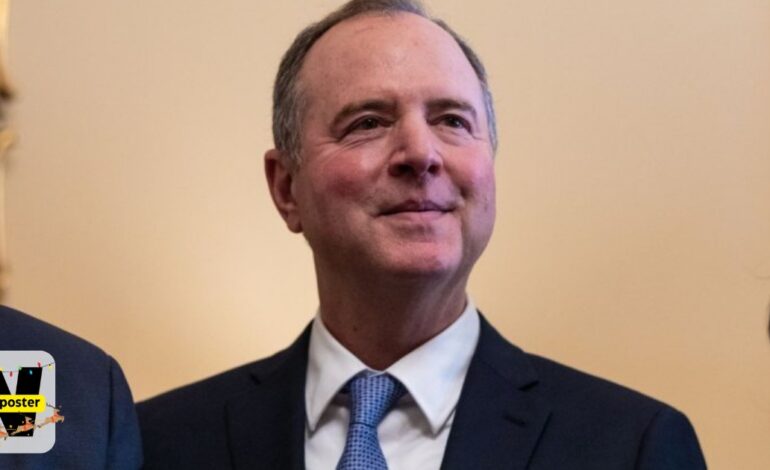TikTok Seeks Emergency Supreme Court Review to Delay U.S. Ban Amid Legal Challenges, Potential Impact on 170 Million Users and National Security Concerns
On Monday, TikTok, along with its parent company ByteDance, filed for an emergency injunction in a high-stakes legal battle against the U.S. government. The tech giant is requesting the Supreme Court to intervene and allow for an extended review period, potentially delaying the enforcement of a law that mandates the app’s ban from the United States. TikTok’s legal team is pushing for a temporary halt to the law that would require ByteDance to divest its American operations by January 19, 2025, or face a nationwide ban. The motion contends that the delay would allow time for a thorough review of the case by both the Supreme Court and the incoming administration of Donald Trump, whose previous statements indicated support for saving TikTok.
TikTok, which has become an integral part of American daily life with an estimated 170 million users, argues that the proposed ban could severely impact free speech rights and violate constitutional protections. Despite concerns voiced by lawmakers about the app’s potential links to Chinese government surveillance and data privacy risks, TikTok’s legal team highlights the growing public opposition to the ban. Pew Research data from September 2024 indicated a sharp decline in support for the ban, with only 32% of Americans in favor of such a measure, down from 50% earlier in the year. Among TikTok’s primary user base, the resistance is even more pronounced, with 61% of users opposing the ban outright.
The current appeal is a direct response to a federal court’s ruling upholding the January deadline for the ban, a decision that set the stage for a significant showdown between the tech industry, national security concerns, and public policy. TikTok’s legal request centers on preserving the rights of its users and preventing the disruptive effects of the law’s enforcement. The company argues that the ban would not only impact millions of individual users but would also stifle the free flow of information and creativity that TikTok facilitates in America.
Background and Legal Developments Leading to the Emergency Review Request
TikTok’s legal battle over its potential ban began during Donald Trump’s first presidential term, when the former president first voiced concerns about the app’s potential for espionage and surveillance. Trump’s administration initially sought to force ByteDance to divest its U.S. operations, citing national security risks tied to TikTok’s Chinese ownership. These concerns resurfaced when President Joe Biden’s administration took office, leading to a series of ongoing discussions about data privacy and security, culminating in the introduction of a formal law that mandates the app’s ban if ByteDance does not comply with divestiture by 2025.
TikTok’s legal arguments center on the protection of First Amendment rights, asserting that the app’s user-generated content serves as a form of expression that should be safeguarded from government interference. The company’s lawyers argue that a ban on TikTok, a platform used by millions of Americans, would set a dangerous precedent for censorship and the limitation of free speech. TikTok has been a key platform for political discourse, creative expression, and even grassroots social movements, further emphasizing the constitutional implications of its potential ban.
The proposed law also carries broader implications for the tech industry, as it raises questions about the role of government in regulating platforms based on foreign ownership. TikTok’s legal team argues that the law would discriminate against foreign-owned companies and open the door for future government overreach, undermining the competitive landscape for tech companies in the U.S. TikTok’s filing underscores the need for a balanced approach that protects both national security interests and fundamental rights.
The Shift in Public Sentiment and Growing Opposition to the Ban
The legal challenge to the TikTok ban has been complicated by changing public opinion. While concerns over data privacy and national security risks were prevalent when the issue first emerged, a significant portion of the American public has grown increasingly skeptical of the proposed ban. According to the September 2024 Pew Research Center survey, support for a government-imposed ban of TikTok has dropped significantly, with only 32% of Americans backing such a measure—down from 50% in March 2023.
This shift in public sentiment reflects a broader recognition of the app’s cultural and economic significance in the U.S. TikTok has become a dominant force in social media, with millions of users, particularly among younger demographics, relying on the platform for entertainment, education, and business. In addition, the app’s role in promoting small businesses, fostering creativity, and facilitating grassroots political movements has made it a vital tool for communication and expression.
The opposition to the ban is particularly strong within TikTok’s core user base. In fact, a staggering 61% of TikTok users surveyed oppose the ban, a testament to the app’s deep integration into their daily lives. Many users argue that the app provides a unique space for self-expression and connection that cannot be easily replicated by other platforms. The potential loss of TikTok would be devastating to these users, who have built substantial followings, careers, and communities on the platform.
As the legal battle intensifies, TikTok’s supporters have mobilized in defense of the app, calling on policymakers to reconsider the potential consequences of banning a platform that has become an essential part of American culture. Advocacy groups have rallied around the issue, emphasizing the importance of safeguarding digital spaces where people can freely express their ideas and creativity.
TikTok’s Response to National Security Concerns and Privacy Issues
While TikTok has faced mounting scrutiny over its ties to the Chinese government, the company has consistently denied allegations of espionage or wrongdoing. TikTok has stated that it stores user data in the U.S. and Singapore, and that it has implemented robust security measures to protect user privacy. The company has also pledged to comply with American data protection laws, asserting that it takes user privacy seriously and is committed to safeguarding personal information.
Nevertheless, concerns about TikTok’s data practices persist, particularly regarding its potential to share data with the Chinese government. The U.S. government has expressed concerns that TikTok’s parent company, ByteDance, could be compelled to hand over user data to Chinese authorities due to Chinese laws that mandate companies to cooperate with state intelligence agencies. However, TikTok has repeatedly stated that it operates independently from the Chinese government and that it has never shared user data with Beijing.
Despite these assurances, lawmakers have remained wary of the app’s potential for misuse. The security risks associated with TikTok have become a central focus of the debate over the app’s future in the U.S. However, many experts argue that the data privacy concerns surrounding TikTok are not unique to the app, as other social media platforms also collect and store vast amounts of user data. Some experts have even suggested that the focus on TikTok may be part of a broader geopolitical rivalry between the U.S. and China, rather than a legitimate concern about national security.
In response to these concerns, TikTok has made efforts to demonstrate its commitment to transparency and accountability. The company has hired a number of former U.S. government officials to oversee its data security practices and has pledged to undergo regular audits to ensure compliance with U.S. laws. TikTok has also taken steps to address misinformation on the platform, working with independent fact-checking organizations to combat the spread of false information.
Despite these efforts, TikTok’s critics argue that the company’s ownership structure and ties to China pose an inherent security risk. Some lawmakers have called for more stringent regulations on the app, including the possibility of a forced sale of its U.S. operations. While these proposals remain contentious, they have contributed to the growing pressure on TikTok and ByteDance to address national security concerns.
The Future of TikTok in the U.S. and the Broader Implications for the Tech Industry
As the legal battle over TikTok’s future in the U.S. continues, the outcome of the case could have far-reaching implications for the tech industry as a whole. A ban on TikTok could set a dangerous precedent for the regulation of foreign-owned tech companies, potentially leading to greater government control over digital platforms and the flow of information. Such a decision could also have significant economic consequences, as TikTok has become a major player in the global tech ecosystem, contributing to the U.S. economy through its advertising revenue, partnerships, and user-driven content.
The case also raises important questions about the balance between national security and free speech. While governments have a legitimate interest in protecting their citizens from potential security threats, they must also be mindful of the constitutional protections afforded to individuals, including the right to free expression. The legal battle over TikTok underscores the tension between these competing interests, and the outcome of the case will likely shape the future of digital governance in the U.S.
As TikTok’s appeal makes its way through the courts, the company’s future in the U.S. remains uncertain. However, the growing public opposition to the ban, coupled with the company’s efforts to address national security concerns, may provide a glimmer of hope for TikTok’s millions of American users. For now, the fate of the app rests in the hands of the U.S. legal system, which will determine whether the government’s national security concerns outweigh the fundamental rights of millions of Americans who rely on TikTok for self-expression, entertainment, and community.




